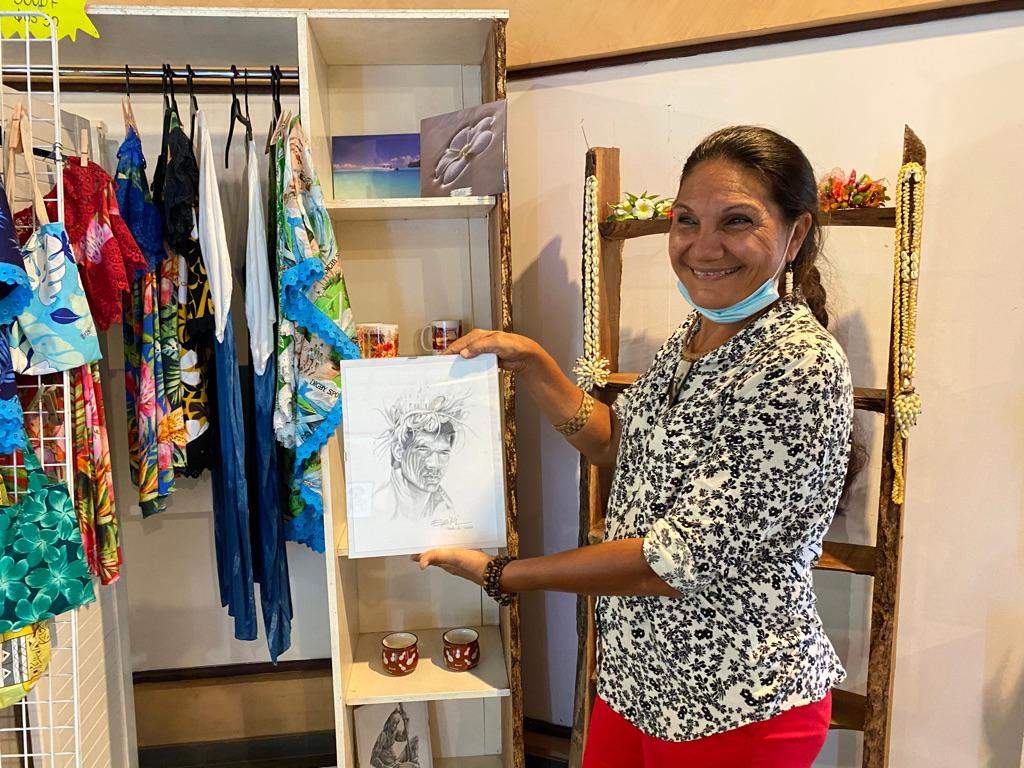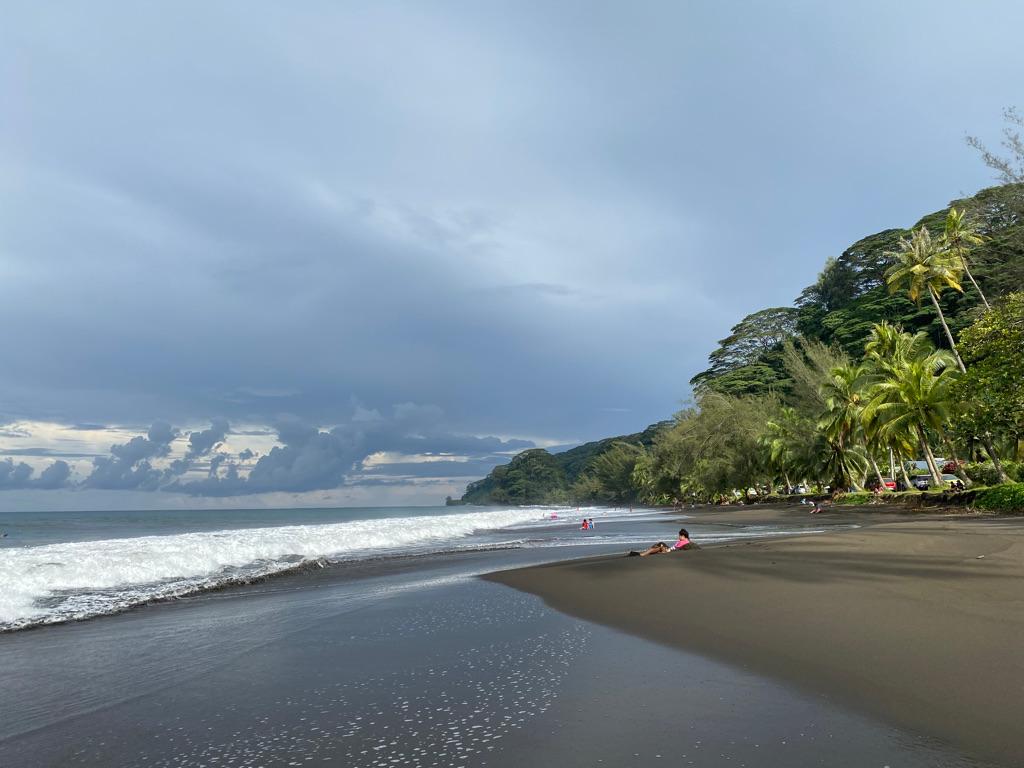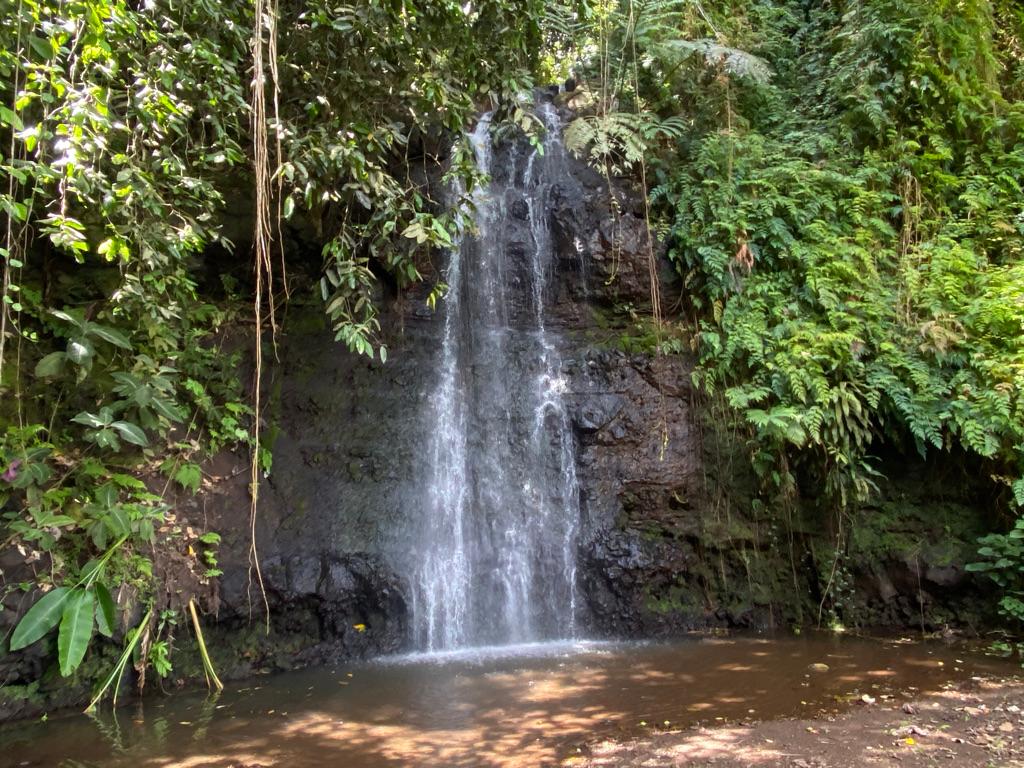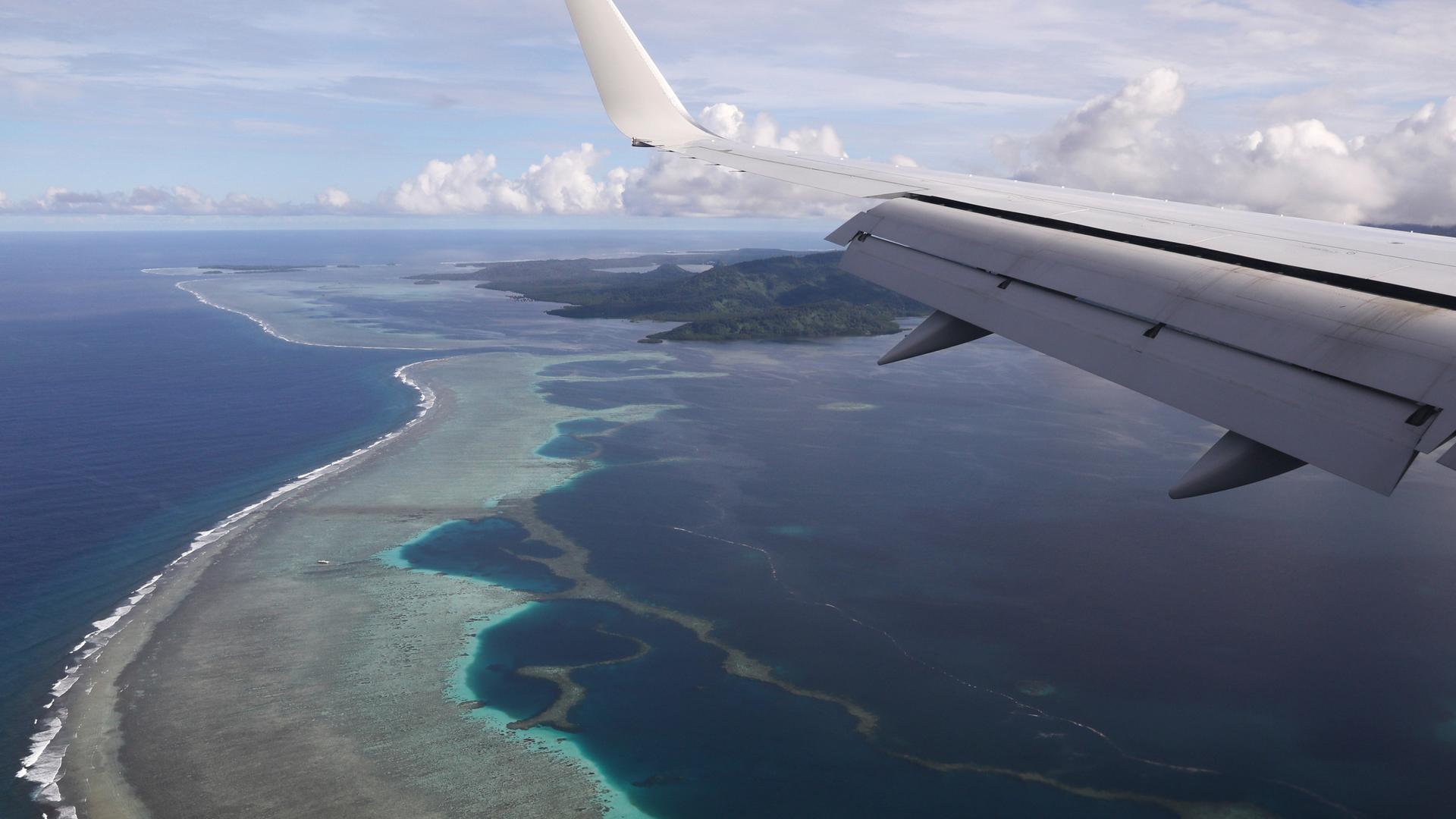The pandemic wiped out tourism on Pacific island nations. Can they stay afloat?
As the coronavirus pandemic edges into its second year, Pacific island nations and territories have managed, so far, to avoid large numbers of COVID-19 cases and deaths.
Due to their remote locations across the Pacific Ocean, most were able to quickly shut their borders, effectively sealing themselves off from the rest of the world.
Yet, while many vulnerable, isolated populations and health systems were spared, the move has come with a great economic cost to many small island nations solely dependent on tourism and key commodity exports.
Related: Happy hour canceled in France under strict coronavirus curfew
In French Polynesia, tourism is the No. 1 economic driver and last year, officials estimated a loss of nearly $1.2 billion because the pandemic brought international travel to a near standstill.
Tourism workers in the French territory say they have seen a massive shortfall in their revenues.

“Before it was nice because we had a lot of cruise ships, they come and it’s full, packed, every time,” said Patricia Marchand, owner of Eriki Arts, a small boutique on the southern part of the island of Tahiti, the largest island of French Polynesia. For the last two years, Marchand has sold beverages, jewelry and art created by her husband.
“Business was good, it was really good,” she said.
At the height of the 2019 tourist season, Marchand said she’d make some $15,000 per month. Now, she doesn’t even make $1,000 per month.
“We just have enough to pay the rent and electricity and I can’t afford to pay any workers.”
“We just have enough to pay the rent and electricity, and I can’t afford to pay any workers,” she said.
Related: Mexico’s battered tourism sector teeters fine line between economy and public health
In July, French Polynesia became the first place in the Pacific to reopen to tourists without a requirement to quarantine, requiring only a negative PCR test and a commitment to self-test four days after landing.
Marchand has mixed feelings about whether that was the right decision because while it brought in more tourists, the number of cases of the coronavirus went up. According to Johns Hopkins University, French Polynesia has had over 17,800 cases of the coronavirus and nearly 130 deaths.
And still, Marchand says she’s unsure her business can stay open.

Official financial data for 2020 is not yet available, but major shortfalls are expected throughout Oceana — a large swath of the Pacific that includes the island nations of Polynesia, Melanesia and Micronesia, with a total population of just over 2 million people. The World Bank estimates an average decline in per-capita growth of nearly 6%.
In Fiji, a decline as much as 20% is expected.
“Business is not good at all,” said Allan Gorton, who runs the Paradise Taveuni resort on the outer Fijian island of the same name.
Gorton said that in 2019, the resort, which depends heavily on US clients, was making roughly $98,000 per month. But since the borders shut down on March 22 last year, the resort only made $20,000 through the end of 2020, and they’ve laid off nearly 90% of the staff, stretching their resources to stay open.
Luckily, the bank didn’t require them to repay any loans through the end of the year.
“…[F]rom Jan. 1, [the bank] requested interest-only payment, which we can’t do because we’ve put in all of our funds into the property for the last 10 months. … So, if they start to demand payments we can’t hold on, it’s gone.”
“But now from Jan. 1, they’ve requested interest-only payment, which we can’t do because we’ve put in all of our funds into the property for the last 10 months,” Gorton said. “So, if they start to demand payments, we can’t hold on — it’s gone.”
Related: Economic inequality could grow worse with COVID-19 vaccines
Roland Rajah, the lead economist at the Sydney-based Lowy Institute, said the Pacific is also suffering because people can’t travel out of the region for work and the remittances they send back are another important part of many economies. Meanwhile, there’s also been a steep drop in global demand for certain products such as oil and gas for Papua New Guinea and timber for the Solomon Islands.
“…[T]ons of people have lost their jobs, tons of businesses have been forced to close down, and therefore people are pushed into poverty and unable to meet their basic needs.”
“What that means is tons of people have lost their jobs, tons of businesses have been forced to close down, and therefore, people are pushed into poverty and unable to meet their basic needs,” Rajah said.
And while wealthier nations are expected to get their average household incomes back up by 2022, Rajah said the recovery process in the Pacific likely won’t happen until 2028.
“It’s got to do with a more severe impact, the inability to bail themselves out and also the fact that their recovery is going to be much slower than the recovery elsewhere,” he said.
Related: Is overtourism over? Travelers to Europe stay home due to COVID-19
To help avoid this so-called “lost decade,” an additional $3.5 billion in aid would need to come from the international community and other Pacific partners, according to a Lowy Institute analysis co-authored by Rajah.
And while some larger countries such as the US, Australia, New Zealand, and even China and Taiwan, have already given millions in aid through economic packages, health care equipment and personal protective equipment, Rajah said it’s uncertain whether that level of aid will continue.

The Federated States of Micronesia has been a beneficiary of more than $118 million in US aid given to the Pacific during the pandemic. The smattering of over 600 island atolls strewn across the North Pacific just registered its first COVID-19 case earlier this month — a case that medical experts described as “historical,” meaning that the patient is no longer infectious.
Micronesian President David W. Panuelo said that unlike their Pacific neighbors, tourism is not a huge industry in Micronesia, and fisheries — their main source of income — did not see a downturn. His government was able to pass a stimulus package to help many hotels and restaurants stay open, and the more than 1,000 Micronesians who lost their jobs due to the pandemic got help from the US, thanks to a bilateral agreement between Micronesia and Washington known as Compacts of Free Association.
Related: Tourism in Tunisia reopens — with precautions
“The CARES Act reached our country because of our close ties with the United States, and so those who’ve lost their jobs were also eligible for pandemic unemployment assistance.”
“The CARES Act reached our country because of our close ties with the United States, and so, those who’ve lost their jobs were also eligible for pandemic unemployment assistance,” Panuelo said.
Through this special partnership, Micronesia has also begun receiving Moderna COVID-19 vaccines, which Panuelo himself has received. And while Panuelo expects this level of cooperation to continue under the new Biden administration, tough decisions still need to be made — particularly since their health care system isn’t equipped to deal with a COVID-19 outbreak, he said.
“It’s tough times,” Panuelo said. “And I think we’re going to combat it with tough measures and the safety and health of our citizens are first and foremost in my administration.”
He said they will not even consider fully reopening until all Micronesians are vaccinated.
Our coverage reaches millions each week, but only a small fraction of listeners contribute to sustain our program. We still need 224 more people to donate $100 or $10/monthly to unlock our $67,000 match. Will you help us get there today?
